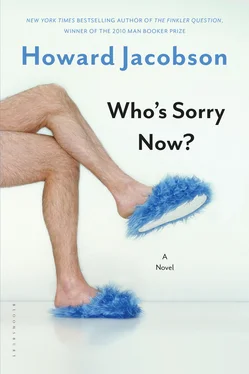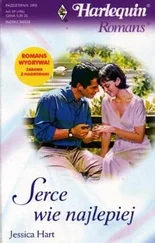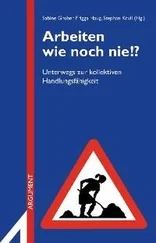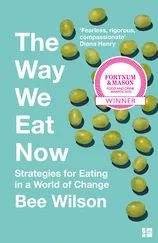Chas drove as if driving were a romp, like climbing over stiles in a high gale. She wore special glasses for it which she peered over comically, and kept getting her feet, which were far too big for the pedals, in each other’s way. And the more entangled her feet became, the faster she drove.
‘Do you want me to take over?’ Hazel asked. ‘It’s tiring driving in the lights with all these late-night lunatics around.’
‘What you could do,’ Chas said, ‘is help me off with my jacket, thank you, and pull my skirt up between my legs, it’s so I can find the brakes.’
As long as Hazel could remember, Chas had dressed in a man’s double-breasted navy jacket, usually buttoned over a top that might have been knitted out of cucumbers, and a long canvas skirt resembling a spinnaker, always (even on the hottest days) worn with thick ribbed tights. It was a blue-stocking get-up — sensible, rural, droll — which was partly forced on Chas, Hazel understood, by the longness of her limbs and the flatness of her chest, but she wore it so unapologetically that Hazel wondered if it wasn’t also provenly a vote winner, that’s to say arousing to someone — some person or persons — other than her husband. Marvin, an individual of such refinement he had pulled his wife weeping (he weeping) from the contamination of smutty jokes, had once offered it as his opinion that Chas was unfuckable to anyone but Charlie, and for all he knew unfuckable to Charlie too, because no man relished the prospect of a mouthful of hot woolly winter hosiery. ‘You fuck with your mouth now, do you, darling?’ Hazel enquired. ‘There was a time when you knew perfectly well how I fucked,’ Kreitman responded. And for the briefest of moments, as they both thought ‘joylessly’, they were more together than they’d been for years.
And had one asked Chas whether she thought she was fuckable to men other than her husband, whether she wore what she wore because she knew something about what men liked that Hazel in her tailored MaxMara suits did not, and which might or might not have been a mouthful of hot woolly winter hosiery, what then? Would she have turned crimson with anger or embarrassment or both — would she have said she didn’t care whether she was fuckable to other men or not, that she was a woman of the twenty-first century who had better things to think about, and that the question, anyway, if it had to be asked at all, was whether other men were fuckable to her — or would she have lengthened her face and looked over the rim of her comical glasses and very loudly said nothing, like a woman whose soul was her own secret?
She was a virgin when she met Charlie, which made two of them; and from the solemn hour she had been asked if she took Charlie to be her lawful, and she had replied ‘I do’, she had never once committed, or so much as thought about committing adultery. Are we to take it, therefore, that on the night she drove Hazel Kreitman to the hospital, so recklessly she almost ploughed into a queue of kids waiting to get into a club at Clapham Junction, and then had to suffer the ignominy of a breath test on Albert Embankment, Chas Merriweather was a woman who could put her hand on her heart and swear she had carnally known no man who was not her husband? Yes and no.
Adultery is violation of the marriage bed, and though she had already met Charlie she had not yet given herself in marriage to him, nor had her professor given himself in marriage to anybody, when midway through discussing her essay on Chekhov (which, incidentally, he thought magical), he had pulled her to him, thrust his little pink tongue into her mouth, suggested his little pink penis into her hand and told her that he loved her. Not an unusual academic event in those days, but unusual for her, unusual for Chas, in that she neither spat out the tongue nor suggested the penis back inside the professor’s pants. Unusual or not, leaving everything where it was hardly constituted adultery, surely to God, regardless of the marital state of either of them. Indeed, in Chas’s view, as it was happening, it didn’t even constitute sex.
Years afterwards, a president of the United States of America would cause an etymological storm by defining fellatio as a performance of something or other entirely non-sexual, and therefore entirely unblameworthy, in its nature. Did Chas beat the president to it? Was this an earlier (if less controversial) instance of not-sex she was having with a man old enough to be her father, whose brain she revered, and whose translations of the Russian masters she knew by heart? Charlotte Juniper, as she was then, was subtler than the president. She thought kissing and holding on to her professor just the once, and not allowing him to come in her hand — though it alarmed her to remember that he came on her essay — both was not sex and yet was not something she should have been doing either. She felt terrible about it and she didn’t. And the reason she felt terrible about it later was that she hadn’t felt terrible about it at the time.
In another corner of her mind, however, for even a good wife keeps corners which her husband never gets to visit, Chas was exhilarated. She had been mistress of events. When she encountered the professor coming in and out of lectures she perched her sunflower head even prouder on its stalk than usual and smiled an adventuress’s smile, while he slunk past, hidden in the folds of his gown, not knowing whether she thought him a lecher, not knowing whether she thought him a fool, not knowing whether she was going to tell on him to the authorities or to other students. It was a time for women to prove they could be as insouciant as men, and Chas believed she had passed the test. Sex wasn’t supposed to matter to men, and now she had shown it needn’t matter to her. Except, of course, that it wasn’t sex.
So what was it?
She had a feeling it ran in the family. She didn’t mean Dotty. In Dotty’s case it ran away from the family. But discounting Dotty, who was the anomaly, there was, she fancied, a proneness to minor quasi-sexual mishap (if that wasn’t putting it too strongly) extending matrilineally she did not know how far back. Her mother and her grandmother were countrywomen of unassailable propriety, the wives of successful public men — the first a surveyor, the second a doctor — but eminent in their own right as well, both serving officers of their respective parish councils, both voluntary educationalists, conservationists, preservationists, indefatigible charity egg-beaters and National Trusters against whom not a breath of malicious rumour was ever raised. Let a working man tip his hat to Charlie’s grandmother too familiarly and he ran the risk of being elbowed on to the road. Charlie’s mother, too, bore herself sternly, wearing corsets as impregnable as armour long after such protection had gone out of fashion, even in Shepton Mallet. And yet to Charlie’s eye they both appeared vulnerable to solicitation of an absurd or accidental nature. There was something of the pantomime dame about them both, now starched and forbidding, now capable of ending up on the straw with their skirts raised. It was almost as though, in proportion as they armed themselves against direct assault, they courted compromising surprise. Not because they hankered for adventure, quite the opposite — because being compromised proved how gauche and therefore how unfitted for adventure they were. Like her? Well, she wasn’t sure about that. But an entry in her grandmother’s diary, bequeathed to her on that formidable lady’s death, only months after her own inconsequent interlude with her professor, certainly rang bells.
‘ Sunday evening, rained all day ,’ the diary read, ‘ drenched to the bone and glad to be home. Spent an unlooked-for hour sheltering under a tree with Mr Leonard Woolf, whose gardens I had gone to inspect. The poor man wretched on account of the recent suicide of his wife by drowning. The sight of all that falling water would not have helped much, I imagine. Whether I should have acceded to his requests in other circumstances I very much doubt. But there was a charitable side to it. And it was only a small favour he asked. Besides, my own curiosity as to the matter of his Jewishness — never having encountered the phenomenon before — spurred me on a little. For myself, cannot say it was a pleasure, cannot say it was not. For him — definitely not .’
Читать дальше












